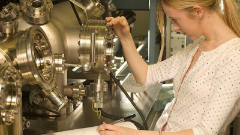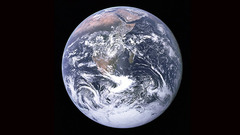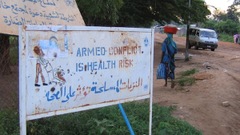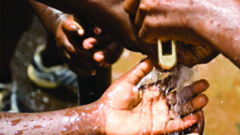Massive open online courses (MOOCs)
Our massive open online courses – or MOOCs – bring The University of Manchester's teaching to a global audience.
All you need to undertake a MOOC is an internet connection. Unlike other courses, they are free of charge and a typical MOOC lasts six to eight weeks.
After completion, you may choose to receive a certificate of completion for a small fee.
Your study on a MOOC takes place entirely online, through videos, discussions, quizzes, and reading and research activities.
We offer our MOOCs through Coursera and FutureLearn.
Courses
-
Collaborative Coding with Git
The course will illustrate how clinical bioinformatics bridges cutting-edge science and the delivery of genomic medicine in clinical practice.
Collaborative Coding with Git course on FutureLearn
-
Clinical Bioinformatics: Unlocking Genomics in Healthcare
The course will illustrate how clinical bioinformatics bridges cutting-edge science and the delivery of genomic medicine in clinical practice.
Clinical Bioinformatics course on FutureLearn
-
Power, Politics, and Influence at Work
Discover the causes of global employment inequalities, how workers gain a voice through unions, and the future of work itself.
Power, Politics, and Influence at Work course on FutureLearn
-
Educational Leadership: Working for Good
You will explore educational leadership and develop leadership skills through critical thinking with this online course for school leaders.
Educational Leadership course on FutureLearn
-
AI for Healthcare: Equipping the Workforce for Digital Transformation
Learn how artificial intelligence is transforming healthcare and how it can support change in the workforce.
AI for Healthcare course on FutureLearn
-
Introduction to Medical Ethics: The Impact of Disability Screening
This course will help you to gain a clearer understanding of ethics and the ethical issues surrounding the prenatal screening of disabilities.
Introduction to Medical Ethics course on FutureLearn
-
Mouth Care Matters
Learn from experts how to provide someone with good mouth care, whether in the health and social sectors or in a domestic setting.
Mouth Care Matters course on FutureLearn
-
Industrial Biotechnology
You will cover the key enabling technologies that underpin biotechnology research: enzyme discovery and engineering; systems and synthetic biology; biochemical and process engineering; and sustainable manufacturing, including responsible research innovation and bioethics.
Industrial Biotechnology course on Coursera
-
Introduction to Molecular Spectroscopy
The course introduces the three key spectroscopic methods used by chemists and biochemists to analyse the molecular and electronic structure of atoms and molecules: UV/Visible; Infra-red (IR); and Nuclear Magnetic Resonance (NMR) spectroscopies.
Introduction to Molecular Spectroscopy course on Coursera
-
Managing Responsibly: Practising Sustainability, Responsibility and Ethics
This course will help you to look at management practices to make them more sustainable, responsible and ethically informed.
Managing Responsibly course on Coursera
-
Introduction to Physical Chemistry
The course provides a unique, in-depth introduction to the three main pillars of physical chemistry: thermodynamics, kinetics and quantum mechanics.
Introduction to Physical Chemistry course on Coursera
-
Our Earth: Its Climate, History and Processes
You will develop a greater appreciation for how the air, water, land, and life formed and have interacted over the last 4.5 billion years.
Our Earth course on Coursera
-
Global Health and Humanitarianism
You will gain an overview of global health and humanitarianism in theory and in practice. These two fields overlap and are connected, in significant ways. We have used three key themes to explore these subjects, presented by three keynote speakers who are leading specialists in their fields.
Global Health and Humanitarianism course on Coursera
-
Protecting the World: Introducing Corrosion Science and Engineering
Introducing you to the complex world of corrosion and corrosion control, such as: why metals corrode, what the environmental consequences are, how much corrosion costs and how corrosion can be controlled.
Introducing Corrosion Science and Engineering course on Coursera
-
Water Supply and Sanitation Policy in Developing Countries Part 1: Understanding Complex Problems
Explore what can be done to solve the problem that half a billion people worldwide do not have adequate water supplies and two billion do not have improved sanitation. You'll develop the skills you need to address this major global challenge of the 21st century.
Water Supply and Sanitation Policy in Developing Countries (Part 1 course) on Coursera
-
Water Supply and Sanitation Policy in Developing Countries Part 2: Developing Effective Interventions
We invite you to develop analytical skills and a deeper understanding of the interventions and solutions to this complex, controversial policy problem in our Part 2 course.
Water Supply and Sanitation Policy in Developing Countries (Part 2 course) on Coursera






.jpg)









